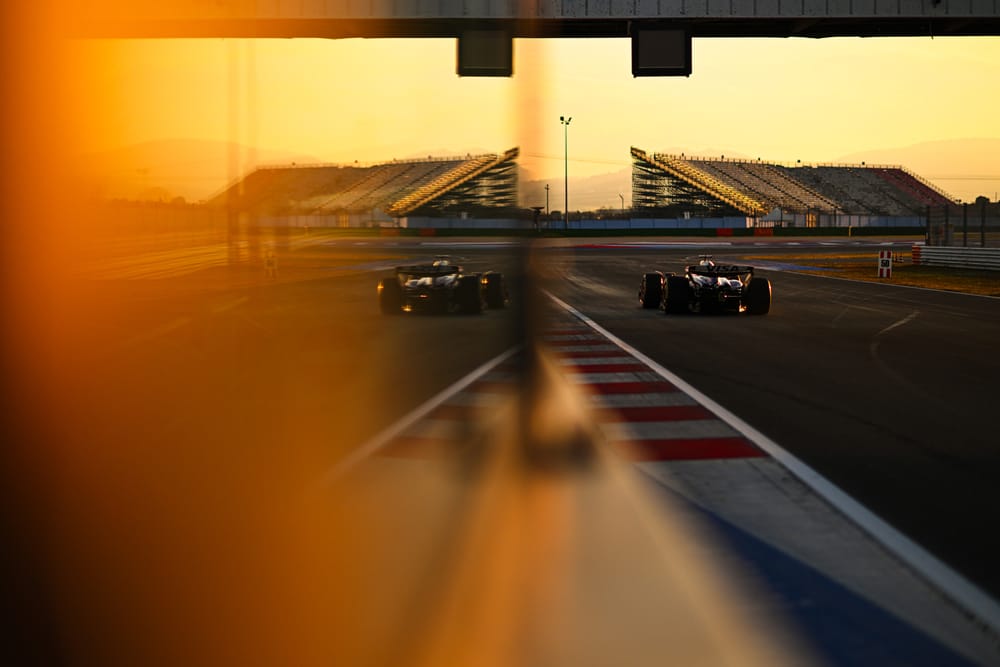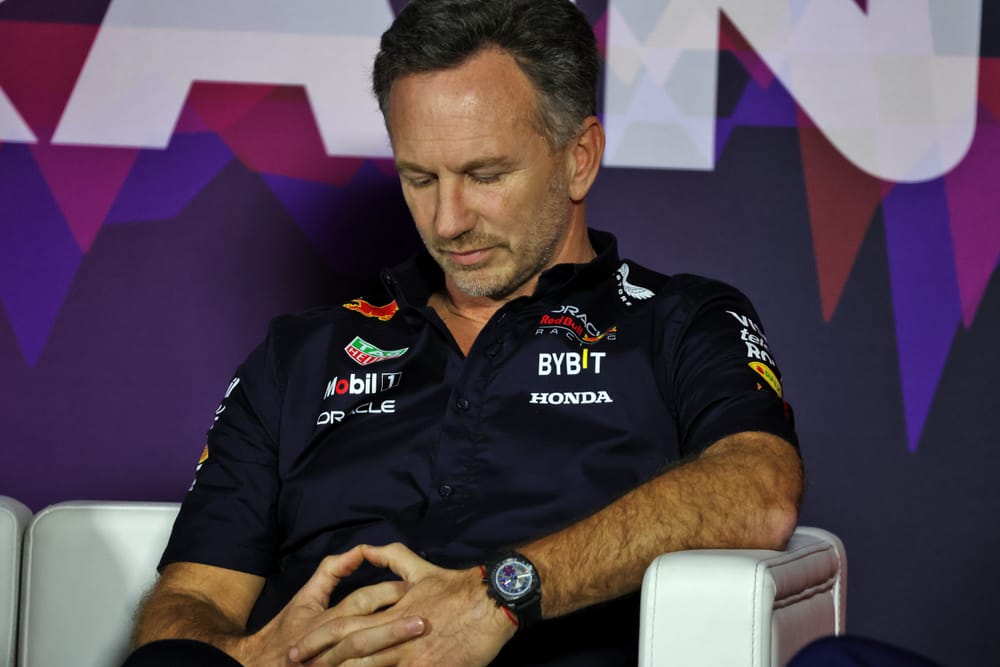Up Next

McLaren Formula 1 boss Zak Brown has been on something of a mission over the winter - but faced a lengthy rebuttal in Bahrain from the boss of the team his attacks have been essentially targeted against.
Essentially Brown wants the FIA to step in to prevent co-ownership of teams and A/B-style collaborations between teams, believing it's no longer befitting of modern F1.
But in the middle of F1 testing, he was placed alongside both Red Bull team boss Christian Horner as well as new RB team boss Laurent Mekies in the press conference.
The Race wasn't going to miss a chance to ask all three of them about the contentious issue - and it triggered some punchy responses which left neither Brown nor Horner completely in the right.
Brown's latest argument
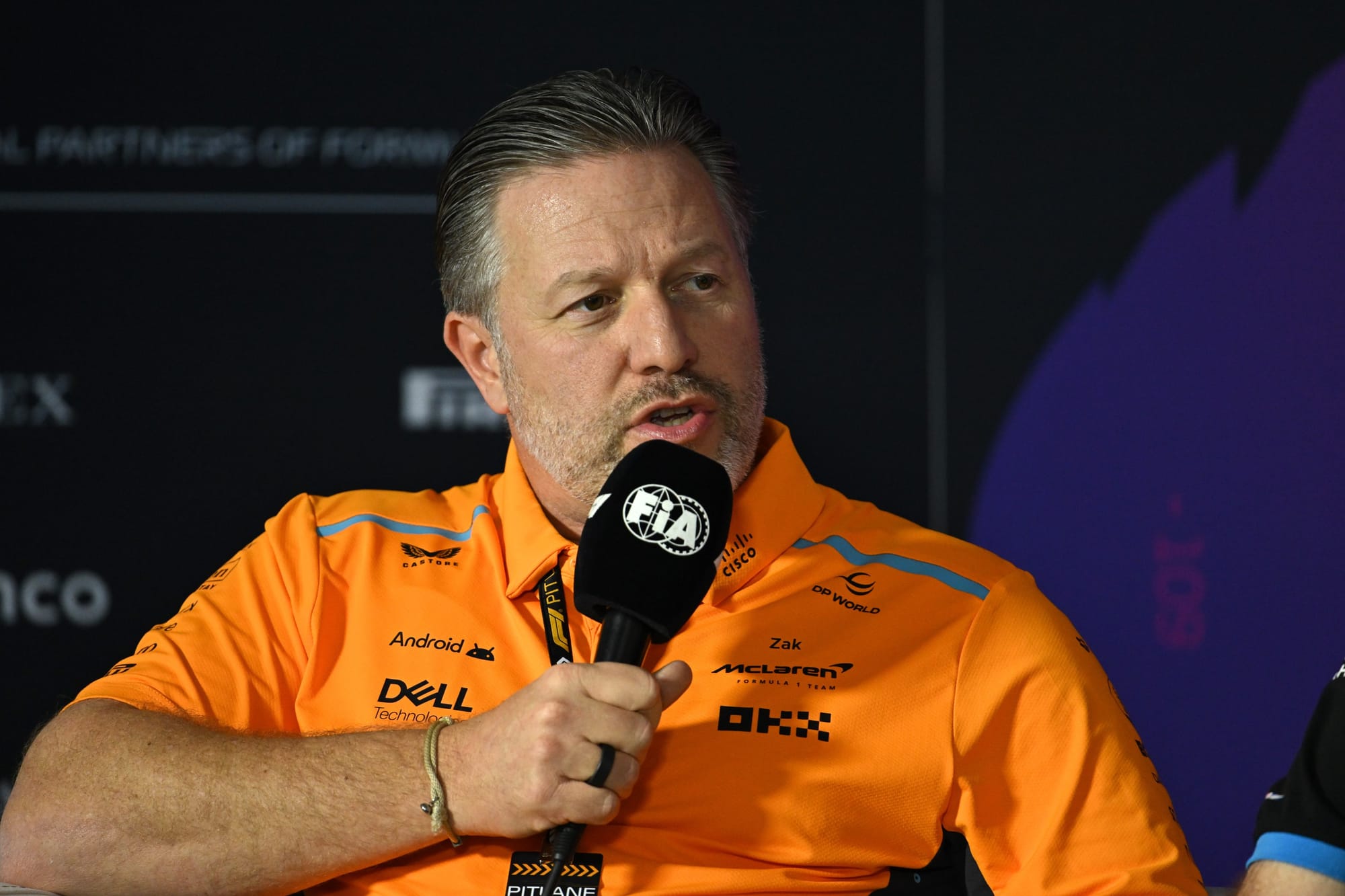
"No other sport to my knowledge allows co-ownership of two teams that compete against each other," Brown said when asked by The Race why he's been so vocal about A/B teams and co-ownership recently.
"So I think the sport, as we’re now in the budget cap era, has moved on to where we’re trying to have 10 independent teams from a sporting, from a political, from a technical point of view.
"I think they [Red Bull] are very much playing by the rules. I have an issue with the rules - and believe the FIA needs to address this.
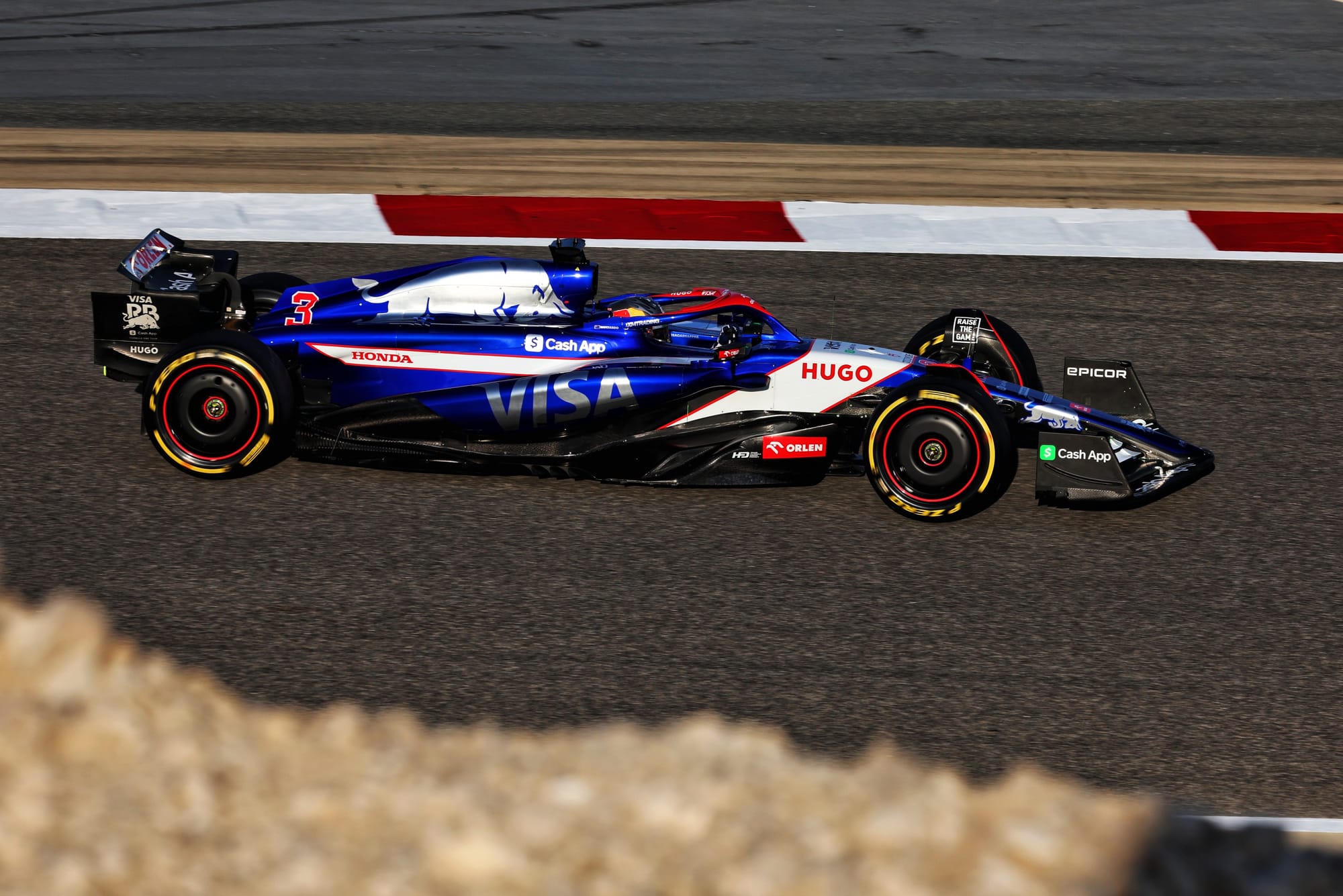
"As Helmut [Marko, Red Bull advisor] has stated, he’s going to maximise the opportunity - which is what you would do if you owned two teams and the rules are what they are today.
"But I think we’re going to find if the intent of the cap in all sports is to have an equal playing field, then the way the rules are currently written aren’t the same for everyone, and you have pockets of teams.
"Also the A/B team situation doesn’t have that level playing field. So I think we now need to address it and the FIA needs to address it through the rules."
Horner on the 'non-issue'
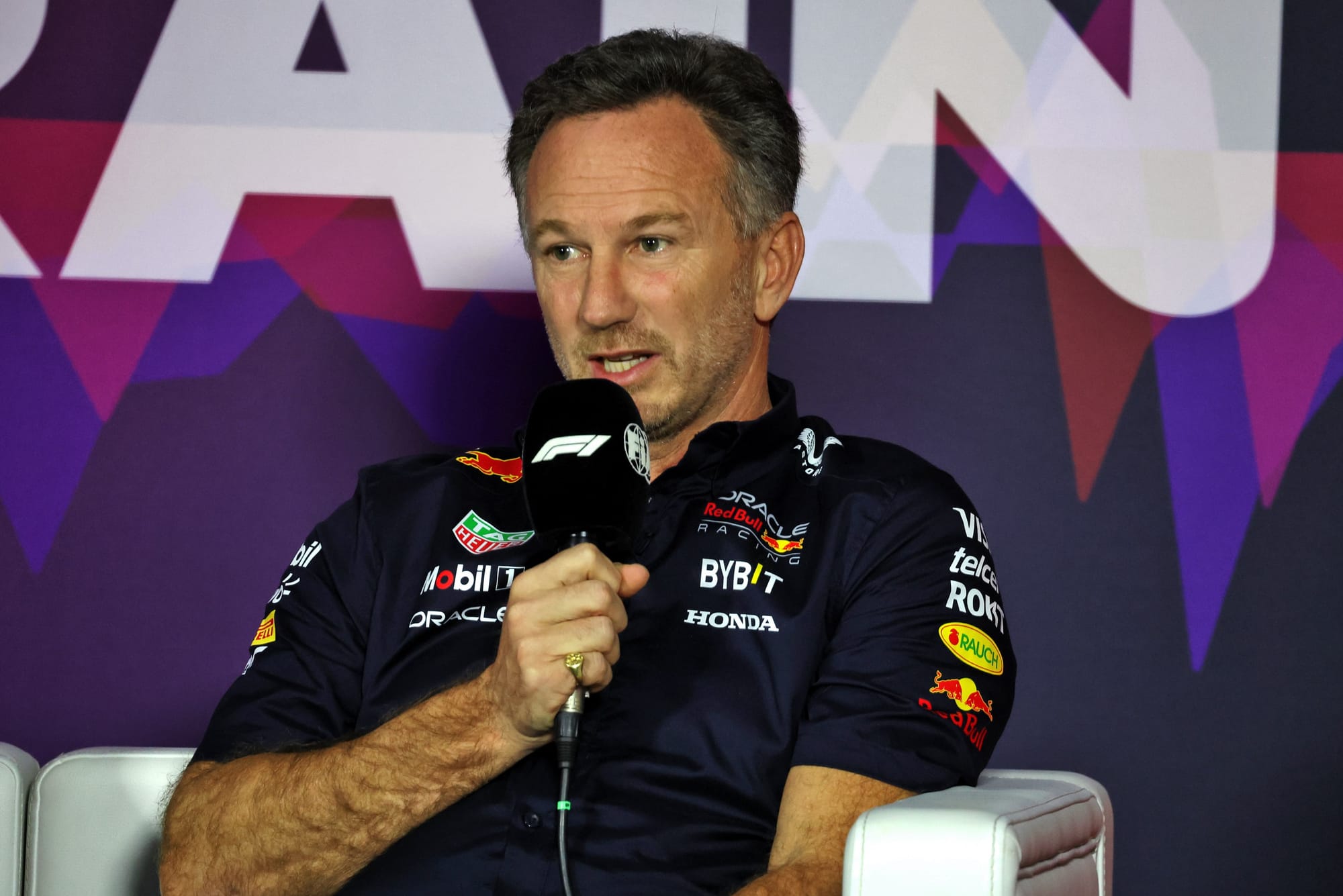
Horner immediately rebutted Brown's claim that no other major sport has co-ownership: "Firstly, Red Bull owns two [football] teams [RB Leipzig and RB Salzburg] that compete in the Champions League - which is one of the biggest sporting competitions in the world."
It should be noted that the issue of RB Leipzig and RB Salzburg competing in the Champions League together (after qualifying from their respective separate national leagues) was a hugely contentious one a few years ago, and that the two teams were required to demonstrate to the governing body UEFA that they were totally independent in their operations and management.
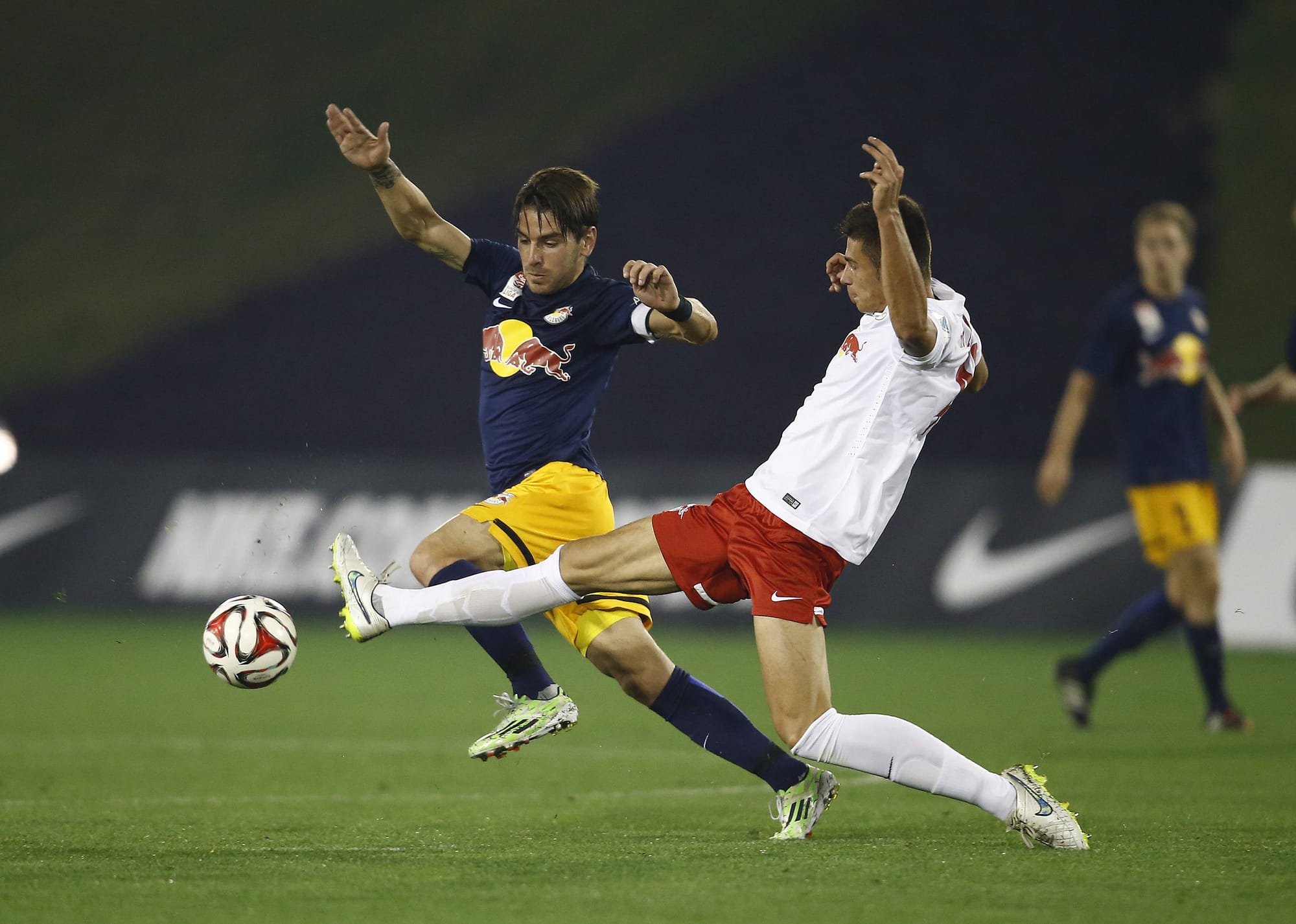
But there too Horner would argue it's a similar situation - as he views Red Bull and RB as "totally separate teams".
He also pointed to the origins of Red Bull buying its second team as justification for keeping it, the energy drink giant having taken over the "perennially struggling, insolvent and on the brink of bankruptcy" Minardi team in 2005.
"Dietrich Mateschitz stepped in and he acquired the team and he shored the team up and then obviously invested significantly in their Faenza facilities based in Italy," Horner said.
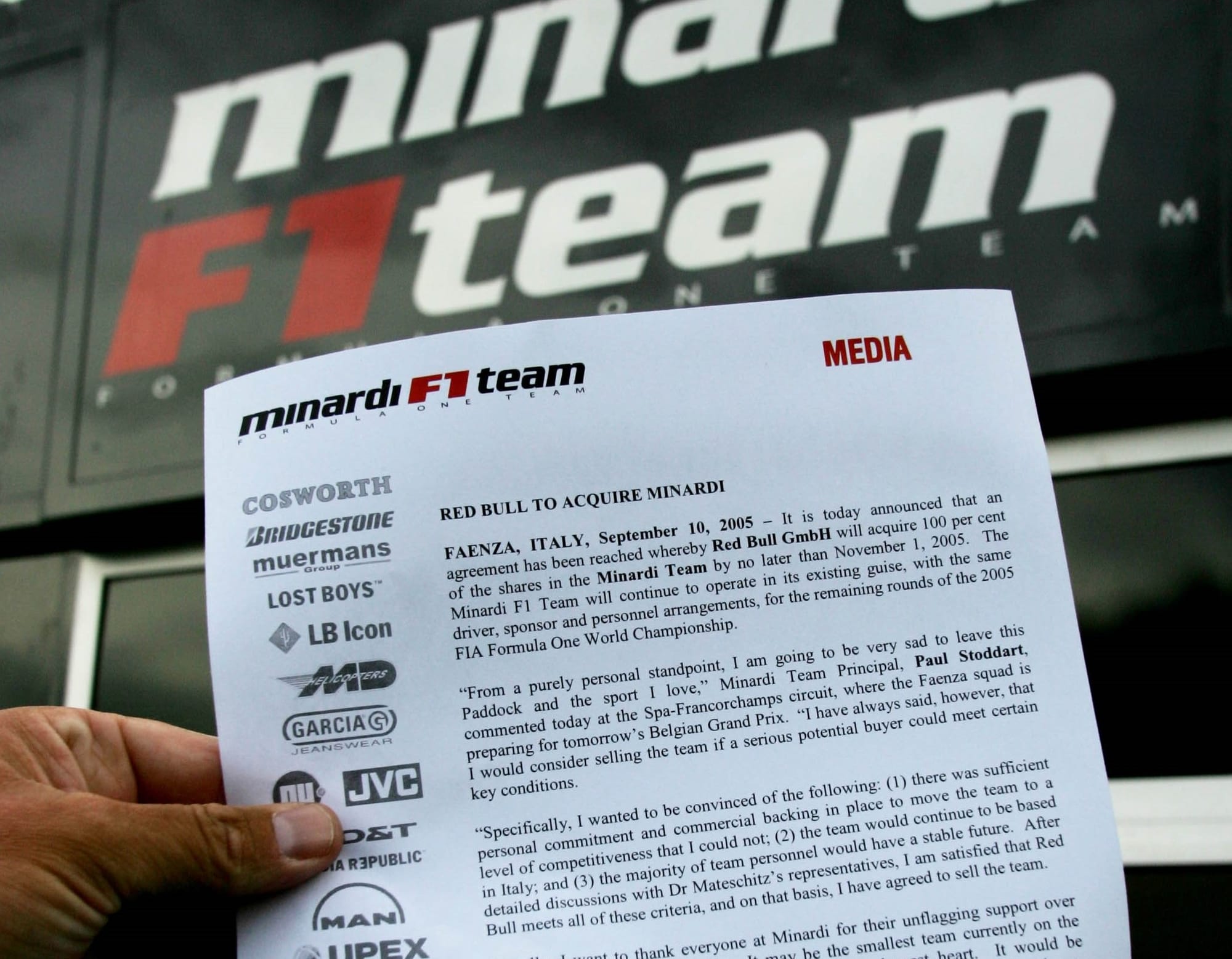
Horner then listed the 2008 financial crisis and Red Bull's continuing commitment through that "other manufacturers [BMW, Toyota and Honda] took that opportunity to leave the sport".
He also cited the further investment needed into Faenza when F1 outlawed customer cars and what was then Toro Rosso had to produce its own car from 2010.
"We then had COVID where Red Bull once again stepped up and stuck by both teams in its entirety. In fact, Red Bull was responsible for getting Formula 1 going again after COVID, with two races that were introduced, to get the sport going again following the pandemic [held at the Red Bull Ring].
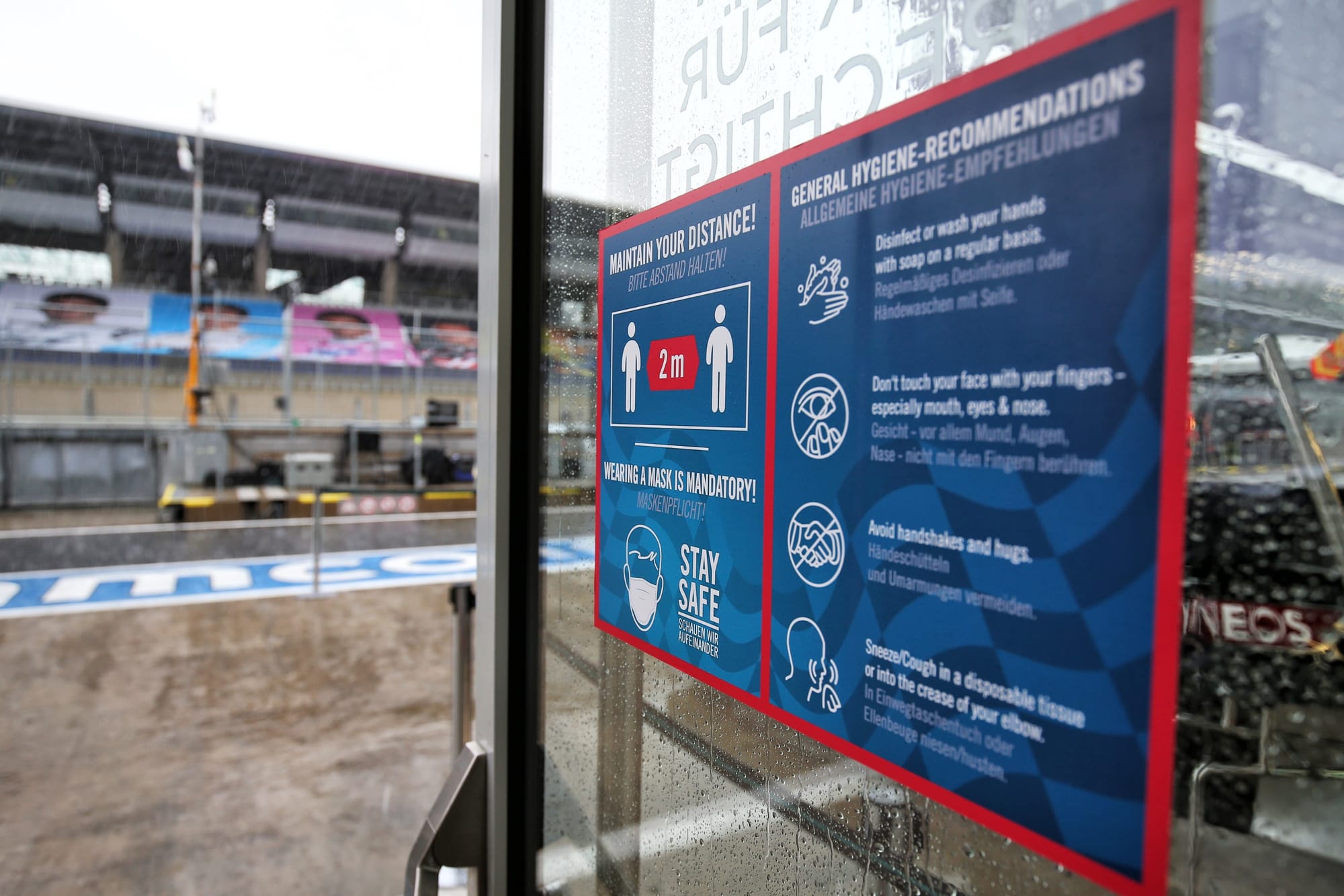
"So the commitment that Red Bull has made to Formula 1 and to these two teams is outstanding and should be applauded, and be grateful for, rather than derided and tried to compromise.
"They [Red Bull and RB] have different personalities, they have different characters, and they comply continually with the regulations."
Horner even called their relationship "less tight than some of the teams that enjoy very tight relationships with their engine manufacturers".
Horner says Mekies "should take it as a compliment" and says he expects RB "to be a competitor, not just of the rest of the field, but indeed of Red Bull Racing".
Horner concluded: "So I don’t understand the fuss about it. I don’t understand the noise that’s being created about it.
"I think Red Bull should actually be applauded for the support and the commitment and the light, the jobs that they’ve provided through the good times, and particularly through the bad times. So for me, it really is a non-issue."
Horner and Brown further muddy messy debate
Edd Straw
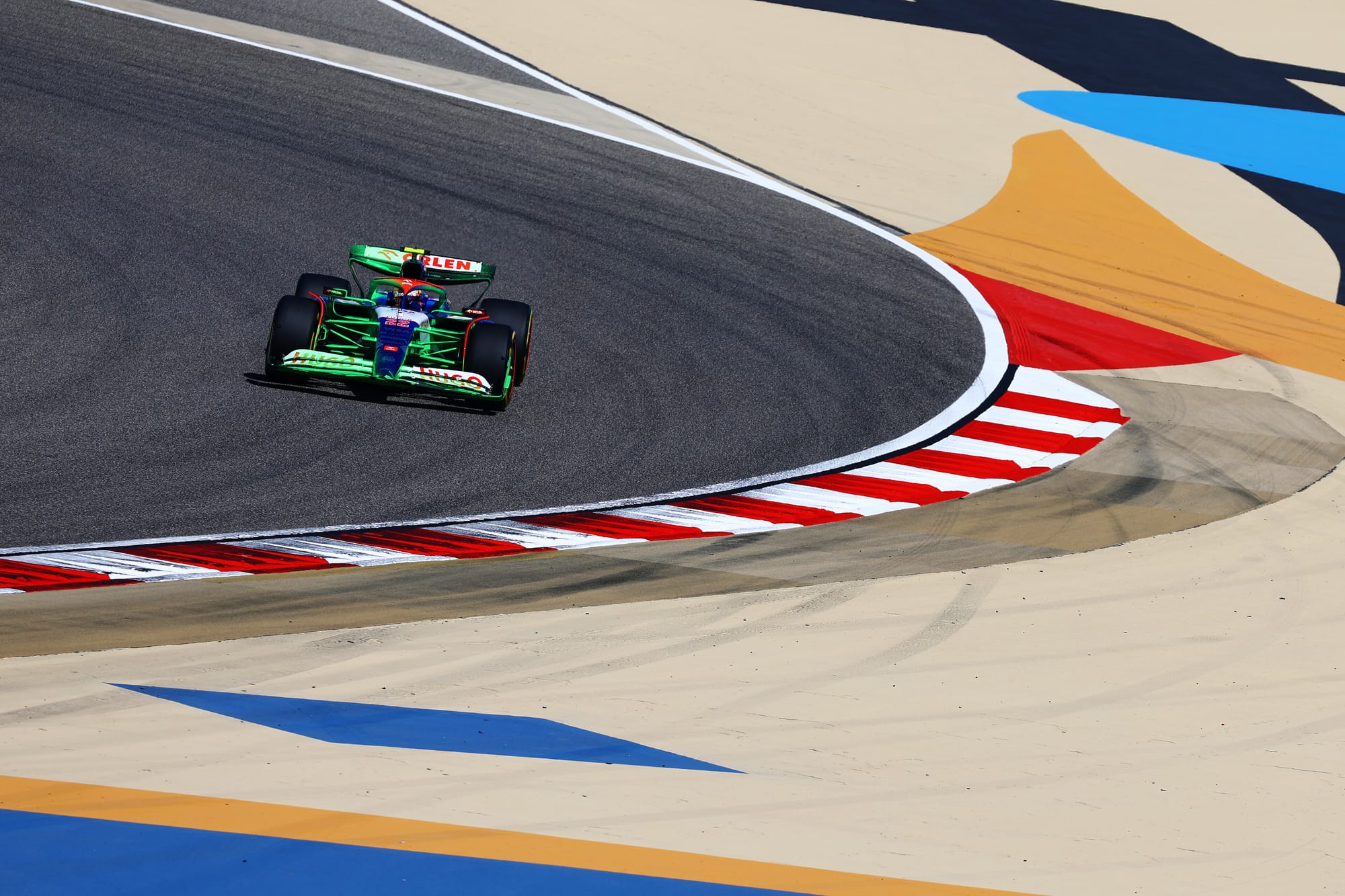
The debate between Brown and Horner on the question of multiple ownership is muddied. At heart, this should fundamentally be an argument about sporting integrity and the need F1 as a whole to ensure there is no shared ownership of competing teams. It’s a point Brown makes repeatedly, and rightly, but that loses focus with excessive focus on Red Bull.
Obviously, Red Bull owns two teams but the demand that “the FIA needs to address it through the rules” is a confrontational one. It allows Horner to almost entirely avoid tackling the key point – of dual ownership – and point out that it would be unfair to pull the rug out from under Red Bull given F1 and the FIA did indeed beg Dietrich Mateschitz to save ailing Minardi almost two decades ago. Red Bull’s commitment to F1 is admirable, but that’s not really the point. Nor is how its second team is operating right now.
This is why The Race argues the need to ensure that no entity or individual can own more than one team – be it full ownership, a controlling stake or a minority slice. This should be enshrined in the 2026 Concorde Agreement.
The status of RB must, however, be 'grandfathered' to allow it to continue under joint ownership precisely because of that history Horner cites. You can’t just move the goalposts.
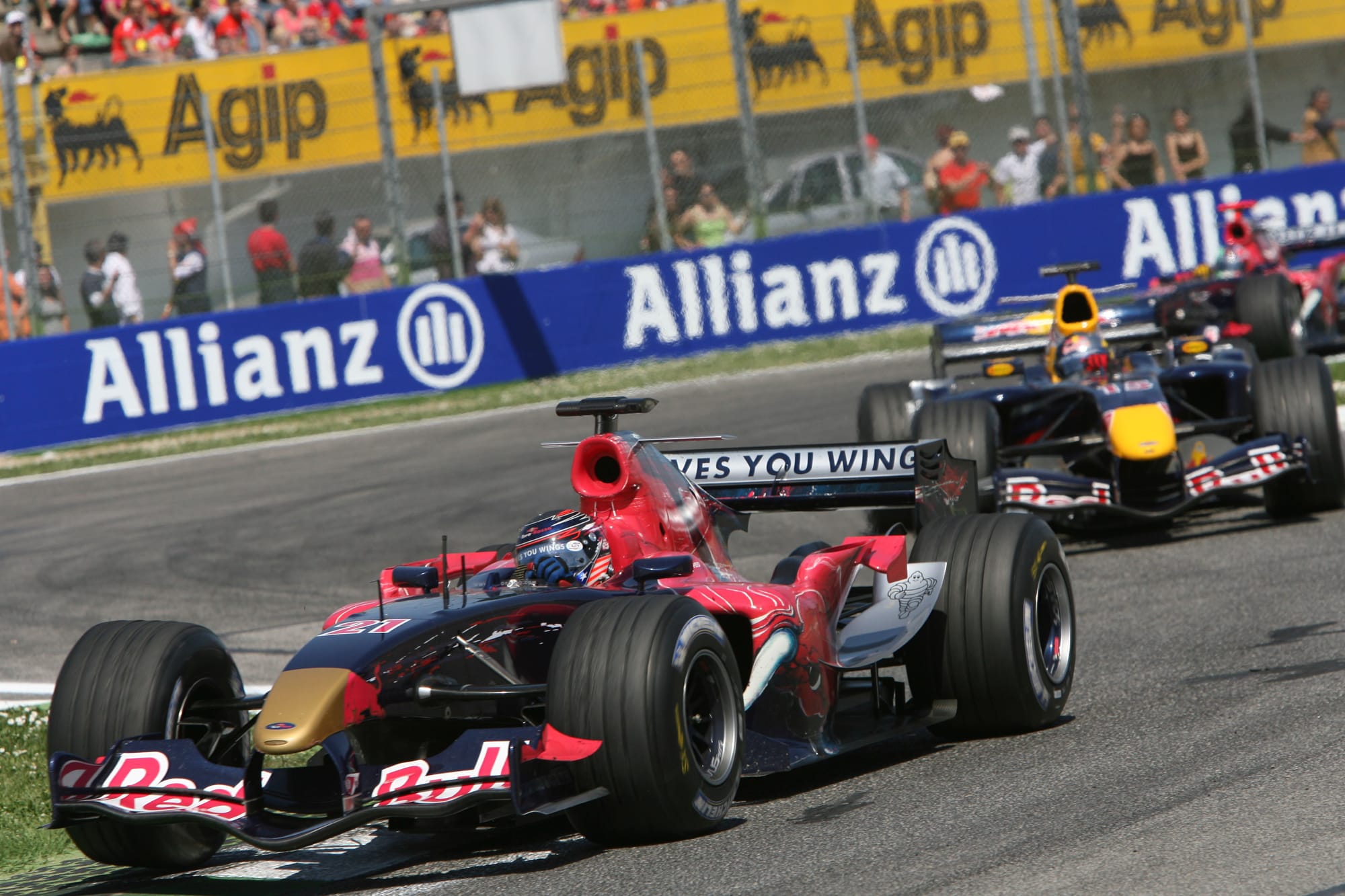
But in the meantime, a way should be found behind the scenes to encourage and incentivise Red Bull to sell its second team for a fair, likely enormous, price. That’s not about forcing it to sell by regulation, but finding a way to massage everyone towards that outcome.
Of course, Red Bull has poured petrol onto the flames with its terrible rebrand of the team as ‘RB’, which undermines Horner’s argument about the team having its own identity, character and personnel - but that’s just another own goal.
It’s probably wise not to dress your second team up as a non-entity if its individuality is going to be part of your argument, but the ship has sailed on that one.
The whole debate needs to get back to basics and avoid clouding the issue by drawing in implied accusations of collaboration and collusion, which in itself allows woolly defences about not 'deriding' Red Bull to be invoked.
Because, fundamentally, Brown is right about the need to ensure independence of ownership.
What Mekies said
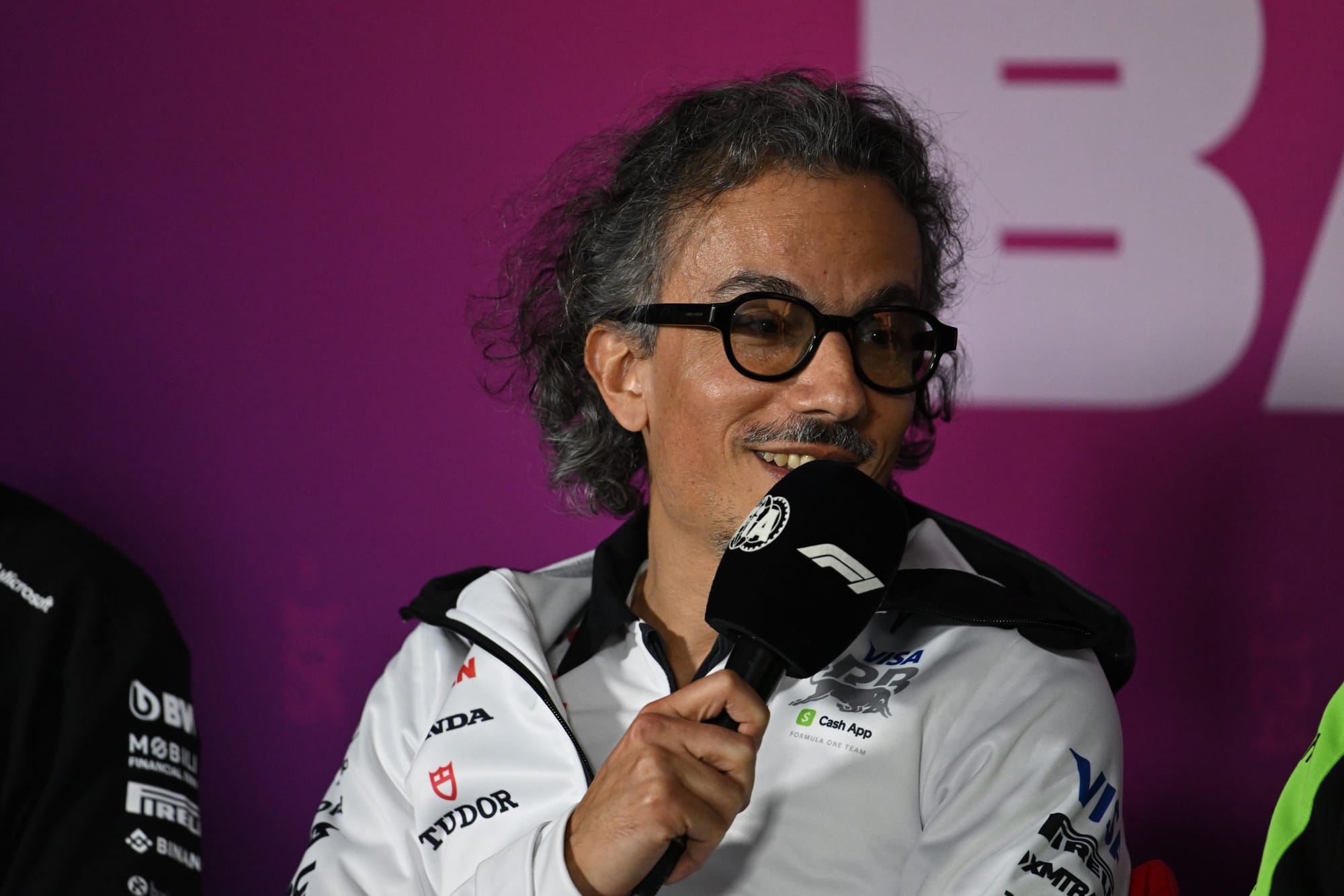
Ferrari convert Mekies was facing his first FIA press conference in RB colours but got straight down to action, justifying RB's relationship with Red Bull.
He said "it's good to remember why we have these regulations" in that sharing components was done to help close the field and ensure there's a "more sustainable business model" for those who want to take it.
"Yes we are in a very good string of years now commercially and with interest in Formula 1, and it’s fantastic, however, there’s a very simple reality that most of the team’s shoulders are still pumping money into it.
"So I think before removing what is the most sustainable alternative into the business model of the teams, we need to have a bit of a long-term view on what it’s going to do for the sport in the next few years."
Mekies also pointed out that the points totals of the bottom four teams in the championship last year didn't even add up together to match next-best Alpine.
7. Williams - 28
8. AlphaTauri - 25
9. Alfa Romeo - 16
10. Haas - 12
Combined - 81
6. Alpine - 120
"So if you look at the face of the championship results, there is still quite a large spread between the guys struggling at the back to get a few points and what is actually the heart of the midfield," Mekies remarked.


